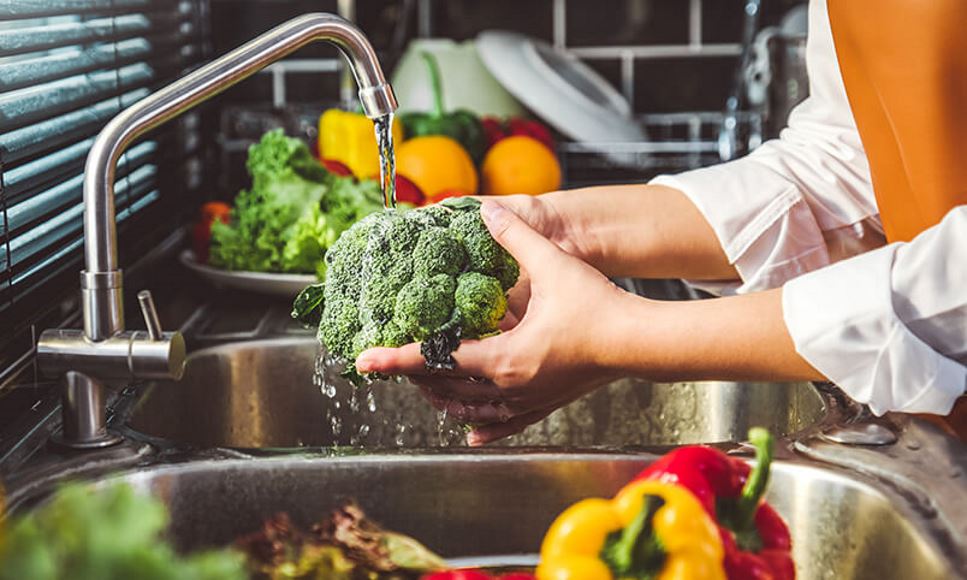Do collective kitchen employees have to undergo food safety and hygiene training in Vietnam?
Do collective kitchen employees have to undergo food safety and hygiene training in Vietnam?

Do collective kitchen employees have to undergo food safety and hygiene training in Vietnam? - image from internet
Pursuant to Clause 5 Article 2 of the Law on Food Safety in 2010:
Catering service establishment means a food-preparing facility, such as shop or stall trading in ready-to-eat food and cooked food restaurant, facility preparing ready-to-eat food portions, canteen or collective kitchen.
As regulated above, collective kitchen is a type of catering service establishment.
Pursuant to Article 3 of the Law on Food Safety in 2010 stipulating principles of food safety management:
2. Food production and trading are conditional activities; and food producers and traders shall bear responsibility for the safety of food they produce or trade in.
Pursuant to Article 28 of the Law on Food Safety in 2010 stipulating food safety assurance conditions for food processing places and commercial provision of catering services:
7. Heads of units having collective kitchens shall take responsibility for food safety.
In addition, to ensure that catering service establishments operate in compliance with the aforementioned conditions and principles, they must meet the requirements for a certificate of food safety as stipulated in Clause 1, Article 1 of Decree 15/2018/ND-CP and Article 34 of the Law on Food Safety in 2010 as follows:
- Every food manufacturer and seller must obtain the certificate of food safety.
- An establishment shall be granted a certificate of food safety eligibility when it fully meets the following conditions:
+ Having adequate conditions for assuring food safety suitable to each type of food production and trading as prescribed in Chapter IV of this Law;
+ Having registered for food production and trading as indicated in its business registration certificate.
Pursuant to Article 36 of the Law on Food Safety in 2010 stipulating dossiers, order and procedures for the grant of certificates of food safety eligibility:
1. A dossier of application for a certificate of food safety eligibility comprises:
a/ An application for a certificate of food safety eligibility:
b/ A copy of the business registration certificate:
c/ Written explanations about the satisfaction of food safety and hygiene conditions of physical foundations, equipment and tools as prescribed by competent state management agencies:
d/ Health certificates of the establishments owner and persons directly engaged in food production and trading, issued by a district- or higher-level health establishment:
dd/ Certificates of training in knowledge about food safety and hygiene of the establishment's owner and persons directly engaged in food production and trading as prescribed by line ministers.
(The certificate confirming that the owner of the collective kitchen, the individuals directly involved in food production or business, or the list of personnel of the establishment directly engaged in production or business, as designated by the competent authority under the provisions and with a validity period of one year from the date of issuance in accordance with the guidelines of Point 11 of Official Dispatch 5845/BCT-KHCN in 2013, serves as proof of having received training on food safety and hygiene.)
According to the aforementioned regulations, both the owner of the collective kitchen and the individuals directly involved in food production must possess a certificate confirming that they have received training on food safety and hygiene in order to be eligible for the certificate of eligibility for food safety. Furthermore, this certificate confirming the training on food safety and hygiene is valid for only one year. Therefore, every year, the staff members working in the collective kitchen must undergo training on food safety and hygiene.
In conclusion, employees in collective kitchens (directly involved in food production) must undergo annual training on food safety and hygiene.
Best regards!










